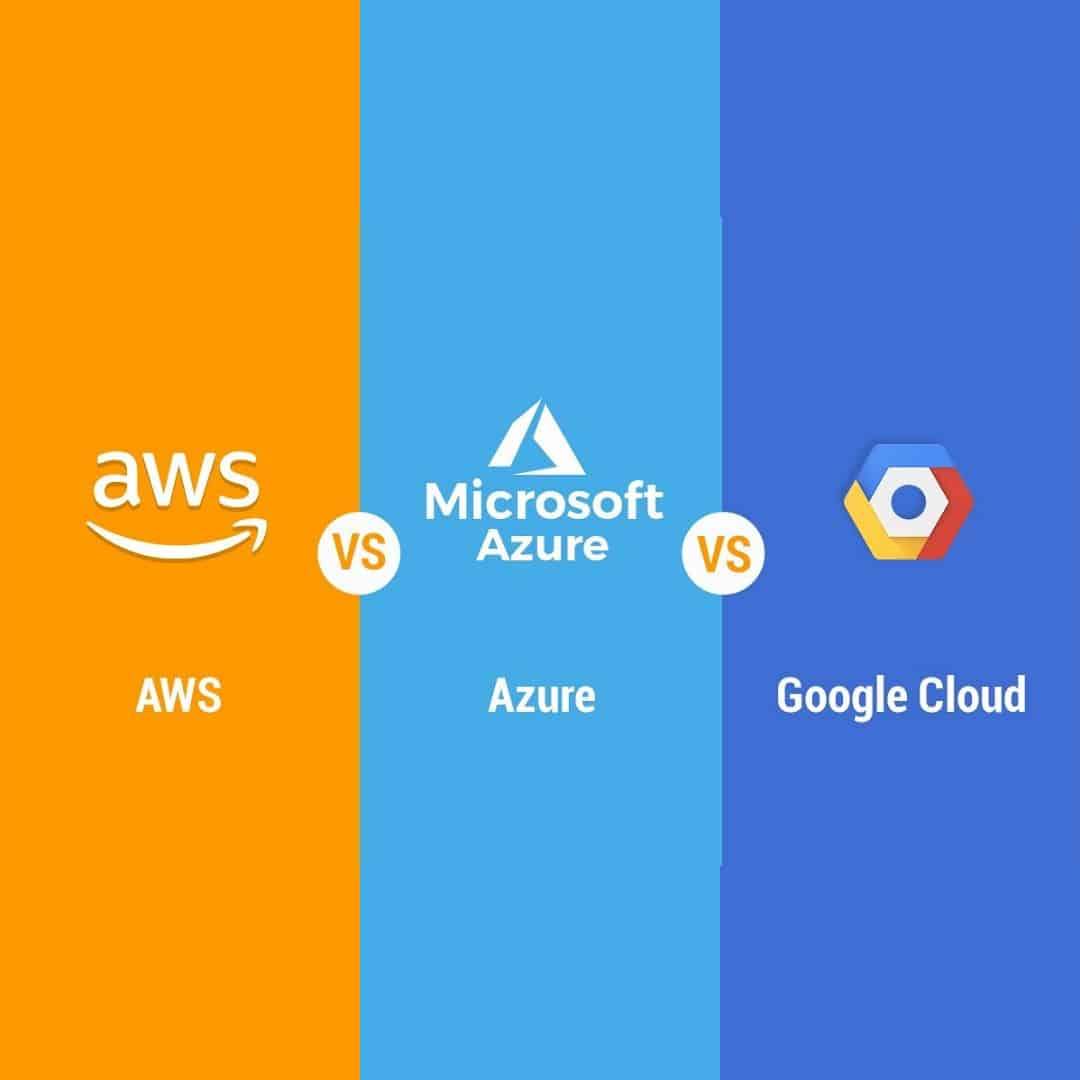Choosing a cloud platform for your application: AWS vs. Azure vs. GCP
Cloud platform had transformed the way we live our lives. For businesses, cloud technology means scaling and adapting at a speed that can accelerate innovation, drive agility in business, reduce costs and streamline operations. Cloud is also leading companies to increased and substantial growth.
Gartner defines, “The cloud infrastructure and platform services (CIPS) market as standardized, highly automated offerings, in which infrastructure resources (e.g., compute, networking and storage) are complemented by integrated platform services. These include managed application, database, and functions as-a-service offerings. The resources are scalable and elastic in near real time and are metered by use. Self-service interfaces, including a web-based user interface (UI) and an API, are exposed directly to the customer. The resources may be single-tenant or multitenant and can be hosted by a service provider or on-premises in the customer’s data center.”

Even though all cloud providers claim to provide every service there are some subtle differences. We will be taking a deeper look into top three cloud providers in the market AWS by Amazon, Azure by Microsoft, and GCP by Google
According to the latest forecast from Gartner, “Worldwide end-user spending on public cloud services is forecast to grow 20.4% in 2022 to total $494.7 billion, up from $410.9 billion in 2021. In 2023, end-user spending is expected to reach nearly $600 billion.”
What is Cloud Computing?
Cloud computing is the ready availability of computing system resources, particularly data storage (cloud storage) and processing capacity, without direct, active management from a user. Cloud computing is on-demand access, through the Internet, to computer resources–applications, servers (physical servers and virtual servers), data storage, development tools, networking capabilities, and so forth–hosted in remote data centres operated by a cloud service provider (or CSP).
While the AWS, Microsoft Azure, and Google Cloud platforms all provide different top-level features when it comes to compute, management, storage, and other services, there are also a few differences among the three platforms. Here we will compare three of the best cloud providers on the market.
AWS vs. Azure vs. GCP: The key differences
When it comes to specialist services, we have noticed considerable differences between services offered by Amazon Web Services and Microsoft Azure and Google Cloud Platform.
1. Compute Services
Amazons EC2 provides core compute services for configuring virtual machines (VMs) using either a customized or preconfigured AMI, whereas Azure provides VHDs (Virtual Hard Disks), like Amazons AMI, for configuring virtual machines. Google provides Google Compute Engine for the introduction of cloud computing services.
| Services | AWS | Azure | GCP |
|---|---|---|---|
|
|
|
|
|
|
|
|
|
|
|
|
|
|
|
|
2. Database Services
It is worth noting here that Azure supports Big Data, NoSQL as well as relational databases. Based on services provided in database domains, differences among the top three public clouds are given in the following table.
| Services | AWS | Azure | GCP |
|---|---|---|---|
|
|
|
|
|
|
|
|
|
|
|
|
3. Storage Services
Storage is an extremely important service when you are talking about Cloud Computing. AWS provides storage services for a long period, whereas the storage services offered by Microsoft Azure and Google Cloud Platform are also solid and respected options.
| Services | AWS | Azure | GCP |
|---|---|---|---|
|
|
|
|
|
|
|
|
|
|
|
|
|
|
|
|
|
|
|
|
4. Networking and Content Services
Each of the cloud providers offers a different network. Amazon’s network is a virtual private cloud, Azure is Virtual Network, and Google is Subnet.
| Services | AWS | Azure | GCP |
|---|---|---|---|
|
|
|
|
|
|
|
|
|
|
|
|
|
|
|
|
|
|
|
|
5. Specialized Services
All three providers offer services according to the latest trends and demands and are most likely to expand them further.
| Services | AWS | Azure | GCP |
|---|---|---|---|
|
|
|
|
|
|
|
|
|
|
|
|
6. Development Tools
Development tools are used for building, diagnosing, debugging, deploying, and managing multiplatform, scalable applications and services. Based on services provided by development tools domain, differences can be given among top 3 public clouds, given in table below.
| Services | AWS | Azure | GCP |
|---|---|---|---|
|
|
|
|
|
|
|
|
|
|
|
|
7. Data Analytics Services
AWS, Azure and GCP offer services in analytics and big data to drive decision-making for businesses.
| Services | AWS | Azure | GCP |
|---|---|---|---|
|
|
|
|
|
|
|
|
|
|
|
|
|
|
|
|
|
|
|
|
|
|
|
|
|
|
|
|
8. Hybrid and Multicloud Options
All three cloud platforms now offer its customers different tools for more flexible cloud setup.
| Services | AWS | Azure | GCP |
|---|---|---|---|
|
|
|
|
9. Pricing
The pricing comparison is based on the machine type offered by AWS, Azure and GCP. Please refer to their website for current pricing.
https://azure.microsoft.com/en-in/pricing/#product-pricing
https://calculator.aws/#/?nc2=h_ql_pr_calc
Conclusion
These top three cloud companies have commanding leads in both the infrastructure-as-a-service (IaaS) and platform-as-a-service (PaaS) markets. They are all competing very closely against each other and have all made their mark with customers through their business offerings.
Stay In the Know
Get Latest updates and industry insights every month.
